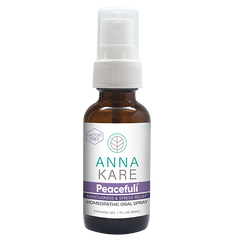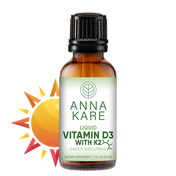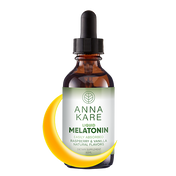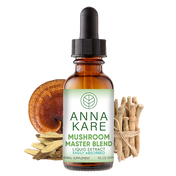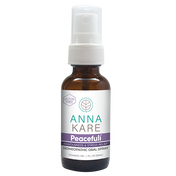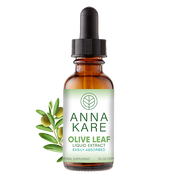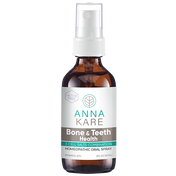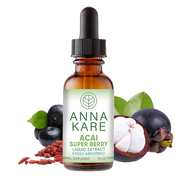About one in three adults and even more adolescents in the U.S. report not getting enough sleep every night. While most struggle to get a solid 6 to 8 hours of sleep, others complain about the quality of sleep, or lack thereof, they are getting.
Inadequate sleep can lead to a variety of disorders including impaired immune function, an increased risk of injuries and accidents, weight gain, and the development of chronic diseases. Sleep deficiency also greatly affects your emotions, focus, and memory.
With the CDC calling sleep deprivation a public health epidemic, we want to share our top 5 biohacks for getting a better night’s sleep. Biohacking is a DIY approach to improving your health and performance by embracing small regular holistic lifestyle changes. Check out the sleep biohacks below to regain control over the quality and duration of your sleep.
But first, let’s take a look at some big events in history and also more recently that have contributed to our poor relationship with sleep and rest.
Events that Have Disrupted Human Sleep Patterns
The reasons for disrupted sleep are varied. Some people lose sleep over daily stress while others don’t sleep well due to changing hormones. But all of us feel the impacts of the advances in technology like the following three.
Did you know that already the introduction of any form of artificial light such as fire dating back to prehistoric times changed our connection with the natural rhythms of the earth? Before humans discovered how to create fire, the sun and moon were our only guiding orbs telling us to wake up and go to sleep.
A more recent way of misaligning our circadian clock, otherwise known as our sleep-wake cycle, was the implementation of daylight saving time first introduced in the U.S. in 1918.
In the 21st century, many of us are greatly impacted by the use of our smartphones which often continues well into the night when it can severely disrupt our natural light-dark cycle.
Seasonal Sleep Challenges
Plus, our sleep quality gets affected by the time of year, change of seasons, and variations in temperatures – more so in winter and summer.
Winter Sleep Challenges
Winter’s cooler temperatures generally contribute to a better quality of sleep by helping you fall asleep faster and stay asleep longer. However, winter is the season when many struggle to spend time outside and get the daylight exposure they need to regulate their internal clock.
As a result, your body may not produce enough melatonin, a hormone which synchronizes your circadian rhythm and without which it is difficult to get sleepy by the end of the day. Winter and central heating also cause a significant reduction in moisture in the air often leading to dry, itchy skin and blocked nasal passages that can make it hard to fall into a comfortable sleep.
Summer Sleep Challenges
Higher temperatures and humidity play a big part in summer sleep disruptions. You’ve very likely experienced it yourself, tossing and turning all night because you’re hot and restless.
During the summer, people are often more active, enjoying the warmer temperatures and staying up longer which can interfere with a healthy sleep schedule. Plus, the warmer months are known for triggering more allergic reactions causing skin or breathing sensitivities that quickly lead to sleep disruptions.
************
If you’re one of the many who struggle with finding refreshing sleep, you may feel comforted knowing that you’re not alone. Plus, recognizing that you’re having trouble sleeping is the most important step toward improving your sleep.
We suggest starting by writing down what keeps you awake at night and then looking at the possible options for help with each sleep problem.
Our Top 5 Biohacks for Better Sleep
1. Discover Homeopathic Remedies for Sleep
We love suggesting homeopathic remedies for improved overall sleep because they are easy to add to your routine, aren’t habit-forming, and are gentle on the body. Plus, if you look at the list of ingredients, you aren’t left wondering what you’re putting into your body.
Peacefulí, is AnnaKare’s sleeplessness’ secret weapon. It’s ideal for those who have a restless anxious mind, stressful days that lead to tense muscles, and long for a good night and peaceful sleep.
Included in this magical formula you’ll find renowned soothing ingredients such as passionflower, the St. Ignatius bean, and cell salt and nerve tonic Kali Phosphoricum.
Homeopathic Oral Spray for
Anxiousness & Sleeplessness
Tissue salt Kali Phos is ideal for those who feel frayed and on edge. While it is included in Peacefulí, adding some extra squirts of cell salt spray Kali Phos is a perfect choice for those who can’t seem to get out of their head when all they really want to do is fall asleep.
There are more tissue salts that can support your sleep. If you suffer from leg or foot cramps during the night, reach for cell salt Magnesia Phosphorica or Mag Phos. If you usually wake up feeling unrefreshed, your choice is cell Salt Silicea or Silica.
2. Take Clean Nutritional Supplements to Improve Your Sleep
➤ Sleep Vitamins
Healthy vitamin D, B, and C levels greatly support a healthy sleep – in that order. Vitamin D, the bone and immune system vitamin, is produced in your body as the sun hits your skin. This action is directly related to controlling your sleep-wake cycle and may even support melatonin production.
The B vitamins are believed to influence our sleep hormones, and B12 is another micronutrient involved in creating melatonin. And vitamin C is a major antioxidant fighting oxidative stress, better described as damage to our cells, which can aggravate sleep problems.
AnnaKare makes liquid vitamins which offer high bioavailability. We prepare them exclusively from clean and traceable ingredients. Remember the best times for taking your vitamin D and vitamin B complex is in the morning while you can take your vitamin C at any time of the day.
➤ Liquid Melatonin for Delayed Sleep Phase
If you frequently have trouble falling asleep and a hard time getting up in the morning, you may benefit from a melatonin supplement. As mentioned earlier, melatonin is a hormone important for quality sleep.
The body makes and releases more of it as it gets dark outside. But if your sleep pattern is delayed and you are not getting sleepy at a conventional hour, it is likely that your melatonin levels are low. The good news is, that melatonin can be taken orally and helps regulate your sleep-wake or circadian rhythm cycle.
At AnnaKare our herbalist-formulated Liquid Melatonin comes with directions for a 3 mg dose. We love that because liquid supplements offer high absorbability which means they can be lighter and gentle and work better. You can even easily take fewer drops and experiment with how much your body needs to fall asleep, and you can take more drops if your health practitioner suggests a higher dose.
➤ Adaptogens like Ashwagandha for Relaxation
Adaptogenic herbs help you de-stress and recover from exhaustion, and they promote relaxation and a good night’s sleep. One of the best known is ashwagandha, a root traditionally used to relieve nervousness, balance hormones, increase focus, and help you fall and stay asleep.
Best taken in the form of a full-spectrum liquid extract that captures all the herbs’ therapeutic benefits, check out ours made here in the U.S. with only organic and sustainably grown botanicals.
with Ashwagandha
3. Make Your Bedroom a Sleep Sanctuary
Is your bedroom your ideal sleep retreat? There are many ways you can improve your bedroom, and thus your sleep, with a few changes. Don’t feel as though you have to do them all in one day, start off small and see how each change makes a difference.
- Mattress and bedding: Find a quality mattress and cotton sheets you enjoy the feel of and are breathable helping regulate body temperature.
- Decor: Use soothing colors and skin-friendly fabrics and textures. Look into color therapy (chromotherapy) to promote a peaceful state of mind.
- Lighting: Create a calming ambiance with lamps rather than overhead lighting. Use blackout curtains to block out sunlight or consider sleeping with a sleep mask.
- Temperature: Make sure the room temperature is adjustable and comfortable.
- Clutter: Keep your bedroom free of clutter and don’t use it as a storage space.
- Greenery: Add a bedroom plant, such as a snake plant or lavender, for a boost in mental health, reduced stress, and improved sleep quality.
2 Homeopathic Oral Sprays & Liquid Melatonin
4. Exercise for Better Sleep
Exercise and sleep are the epitome of a symbiotic relationship. Not enough sleep, and you won’t want to exercise. No exercise, and you can say goodbye to a good night’s sleep.
The good news is that 30 minutes of moderate exercise are enough to help you get a better night’s rest and even better, all it takes is one day. This means if you put in 30 minutes of exercise today, you can expect to get some shut-eye tonight.
What kind of exercise is best?
- Do something you enjoy.
- Start off slow, no need to run a marathon. Go for a walk, a swim, or run around with the kids in the park. If you feel your heart pumping, that’s what your body needs.
- Don’t feel stressed if you can’t get in 30 minutes every day. 10 minutes is always better than 0 minutes.
- Make sure you exercise at the right time of day, that is, not right before bed. Ideally, avoid exercising 2-3 hours before you hit the sack so that your endorphin levels and core body temperature can return to optimal sleep-giving levels.
According to the Sleep Foundation, exercise in the morning or afternoon helps stabilize your circadian rhythm by releasing melatonin earlier in the day. This works even better if you take your exercise outside and get the benefit of sunlight.
But like everything, there are always exceptions. Yoga before bed, for example, such as a gentle flow made for relaxation is perfectly acceptable.
5. Introduce a Winding Down Bedtime Routine
We’re all guilty of doing something we shouldn’t before we head off to bed. Whether we take our phones to bed with us, eat a snack before bed, or even fall asleep on the couch for a pre-nighttime nap, these little habits can interfere with getting the sleep you crave.
Try introducing yourself to a consistent winding-down bedtime routine. It can include any (or all) of the following:
- Take a warm bath.
- Cut out bedtime snacking, caffeine, and alcohol after 6 pm.
- Add some pranayama or deep-breathing exercises before bed.
- Do some gentle stretching in bed.
- Listen to a nighttime meditation.
- Drink some chamomile tea an hour before you head to your sleep sanctuary.
- Stop using all devices an hour before you go to sleep.
- Write in your journal to brain-dump your anxious thoughts and prepare your to-do list for the following day.
- Read a few pages of a book.
- Use relaxing sounds.
Sleeplessness Remedies
5. Bonus Tips for Better Sleep
- Keep consistent sleep and wake times, even on your days off.
- Consider taking a nap during the day or cutting out naps, depending on what works best for your body.
- Try a weighted blanket to help calm the nervous system and increase melatonin.
- Use a humidifier in the winter to handle dry air and help combat dry, uncomfortable skin. Adversely, use a dehumidifier in the summer to combat humidity.
- Change where you sleep depending on the season. For example, during the summer, try sleeping in a room on a lower level in the house.
Key Takeaways
We all suffer from sleep disruptions from time to time, but when poor sleep becomes a regular occurrence, it’s time to take your sleep health back into your own hands. It’s important to remember that your circadian rhythm and melatonin production are two of the biggest factors when it comes to a good night’s rest. Others include stress and anxiety, vitamin deficiencies, seasonal changes, and more.
You can take many mindful and holistic steps to improve the quality of your sleep, from choosing when to exercise to committing to a bedtime routine to seeking support from pure natural remedies and supplements. Knowing what kind of sleep struggles you suffer from is half the battle. Record your experiences and select a sleep biohack that will combat your specific problems.
All statements in this article are grounded in natural wellness practices. They have not been evaluated by the Food and Drug Administration.


